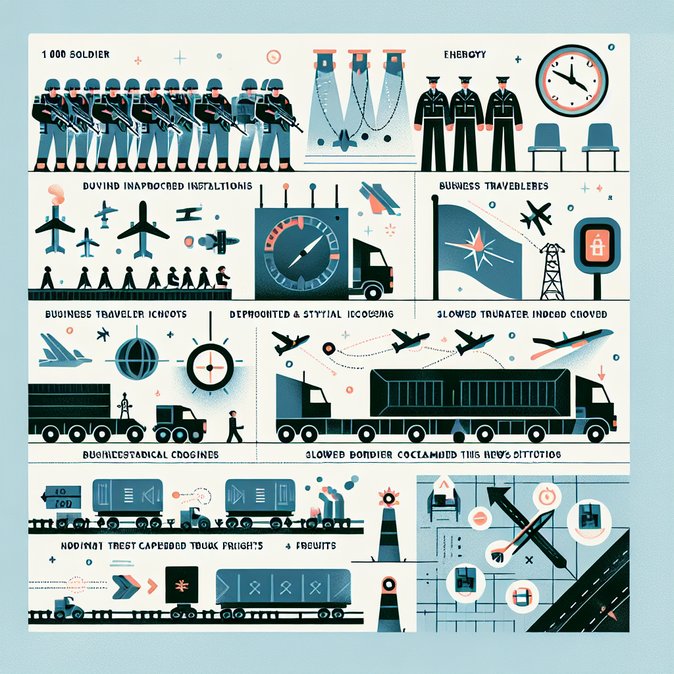
Following the rail sabotage, Poland’s Council of Ministers has activated a nationwide security plan dubbed Operation Horizon, tasking up to 10 000 soldiers with round-the-clock patrols of rail bridges, power substations, pipelines and airports. Defence Minister Władysław Kosiniak-Kamysz said on 19 November that mixed army–police teams will mount drone-supported inspections along 3 400 kilometres of trunk rail lines and at all border crossings with Belarus and Ukraine.
For travellers the most visible change will be at transport nodes: passengers entering Warsaw Chopin and Kraków Balice airports will see armed military police at curbside and platform checkpoints, while HGV drivers on the A2 and S12 corridors can expect random cargo-door inspections. The ministry insists the measures are “temporary and intelligence-led”, but logistics associations warn that systematic vehicle scans could add 20-30 minutes per border crossing, especially at Terespol and Dorohusk.
![Poland launches ‘Operation Horizon’, deploying 10 000 troops to safeguard key transport corridors]()
Business-airport operators are meanwhile reviewing landside access passes; at least three handling agents at Poznań–Ławica have suspended visitor-badge programmes for contractors without long-term security clearance. HR mobility teams moving sensitive equipment—or relocating staff households—should update packing lists and ensure drivers carry declarations in Polish to speed roadside checks.
Similar troop deployments after 2022 pipeline explosions lasted six weeks; defence officials say the current mission will be assessed weekly and scaled down once investigators are confident further attacks are unlikely. Corporate security analysts nonetheless advise keeping alternate routing options ready and maintaining higher travel-risk ratings for eastern and central Poland until Operation Horizon is lifted.
For travellers the most visible change will be at transport nodes: passengers entering Warsaw Chopin and Kraków Balice airports will see armed military police at curbside and platform checkpoints, while HGV drivers on the A2 and S12 corridors can expect random cargo-door inspections. The ministry insists the measures are “temporary and intelligence-led”, but logistics associations warn that systematic vehicle scans could add 20-30 minutes per border crossing, especially at Terespol and Dorohusk.

Business-airport operators are meanwhile reviewing landside access passes; at least three handling agents at Poznań–Ławica have suspended visitor-badge programmes for contractors without long-term security clearance. HR mobility teams moving sensitive equipment—or relocating staff households—should update packing lists and ensure drivers carry declarations in Polish to speed roadside checks.
Similar troop deployments after 2022 pipeline explosions lasted six weeks; defence officials say the current mission will be assessed weekly and scaled down once investigators are confident further attacks are unlikely. Corporate security analysts nonetheless advise keeping alternate routing options ready and maintaining higher travel-risk ratings for eastern and central Poland until Operation Horizon is lifted.


